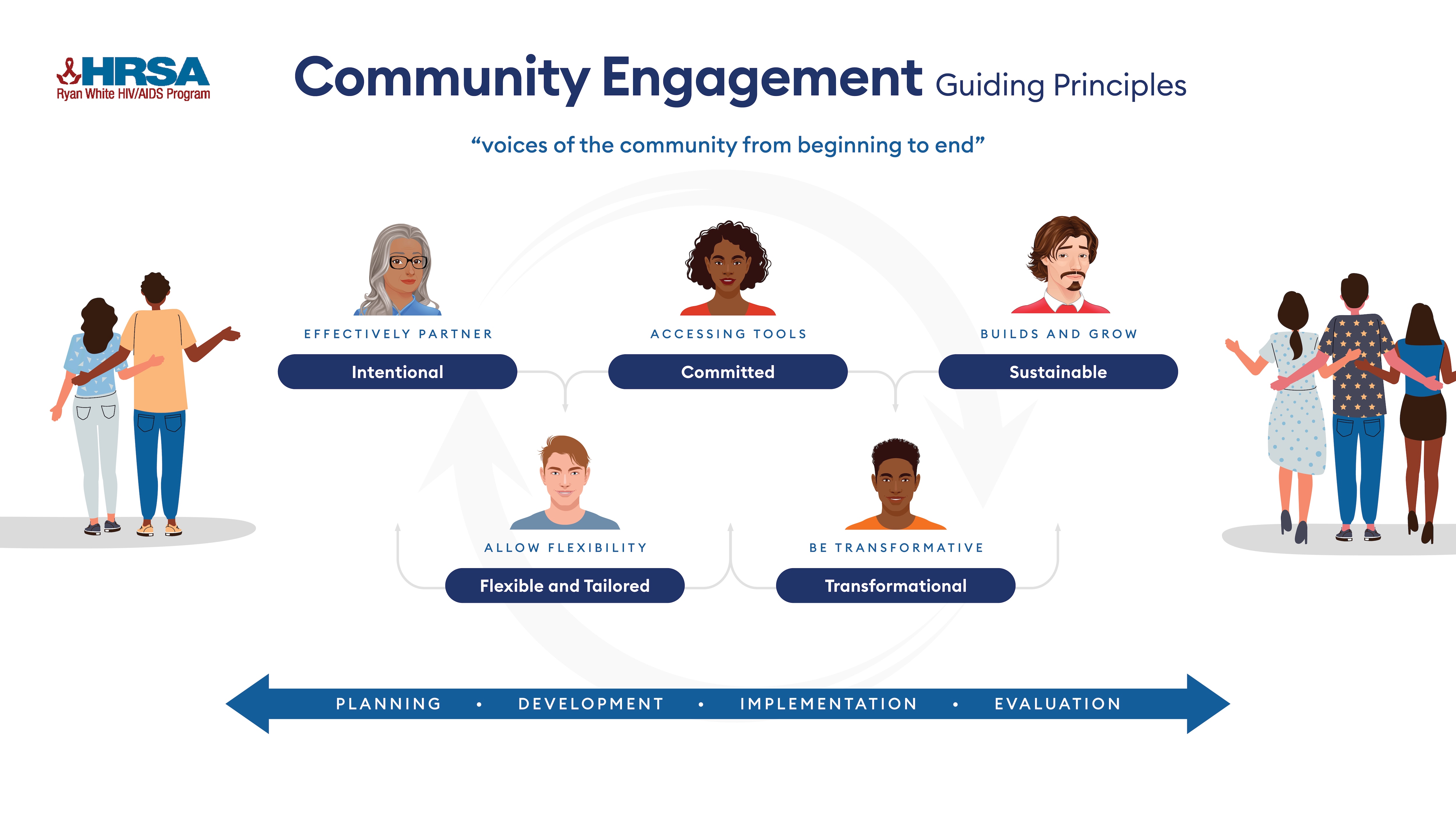The Time is Now: Ending the HIV Epidemic in the U.S.
For more than three decades, the Ryan White HIV/AIDS Program (RWHAP) has provided a comprehensive system of HIV medical care, medication, and essential support services to more than half a million people with HIV in the United States, which improves health outcomes and reduces HIV transmission. In 2019, 88.1 percent of RWHAP clients receiving HIV medical care reached viral suppression, compared with 69.9 percent in 2010. During the next five years, HRSA’s RWHAP will focus on innovative and effective ways to engage people with HIV in care and treatment and will support clients in their efforts to reach viral suppression and help end the HIV epidemic in the U.S.
2020–2025
In 2020, the federal government launched a bold new initiative called Ending the HIV Epidemic in the U.S. (EHE). This initiative intends to reduce the number of new HIV infections in the United States by at least 90 percent by 2030. The initiative focuses on four strategies—diagnose, treat, prevent, and respond—that together can end the HIV epidemic in the U.S.
To accomplish these goals, HRSA awarded funding to RWHAP EHE recipients to link people with HIV to critical care and treatment services as well as to provide workforce training, technical assistance, and systems coordination. This initiative is focused on 48 counties; Washington, D.C.; and San Juan, Puerto Rico, where more than 50 percent of HIV diagnoses occur and on 7 states with substantial rural burden of HIV. In fiscal year (FY) 2020, HRSA awarded $63 million to 61 RWHAP and EHE recipients in selected jurisdictions to link people with HIV who are newly diagnosed—or who have been diagnosed but are currently not in care—to essential HIV care and treatment and support services. Likewise in FY 2021, HRSA awarded approximately $99 million to 61 RWHAP and EHE recipients to expand innovative interventions and access to HIV care, treatment, medication, and essential support services.
With EHE funding, HRSA recipients are better positioned to develop and implement local EHE plans that focus on people who have not yet successfully been maintained in care. During the first eight months of EHE implementation, progress has included developing administrative and service delivery infrastructure, engaging with community members and new partners, and delivering services to clients. RWHAP EHE activities include—
- Leveraging new technology, such as telehealth and mobile apps
- Developing and implementing new service delivery models and programs, such as rapid start, community health workers/peer navigators, differentiated service delivery, and mobile care/outreach
HRSA HAB understands that community engagement and input at all levels of planning of the EHE initiative are essential to developing and implementing effective strategies to address health disparities. HRSA HAB is conducting virtual listening sessions and roundtable discussions with the RWHAP public health leaders and providers, people with HIV, community health centers, community-based organizations, and community members. These sessions focus on the barriers and facilitators to achieving the goals of the EHE initiative in regions across the country and ultimately will shape how HRSA’s RWHAP continues to move forward with efforts to end the HIV epidemic in the U.S.
 Health Resources & Services Administration
Health Resources & Services Administration


